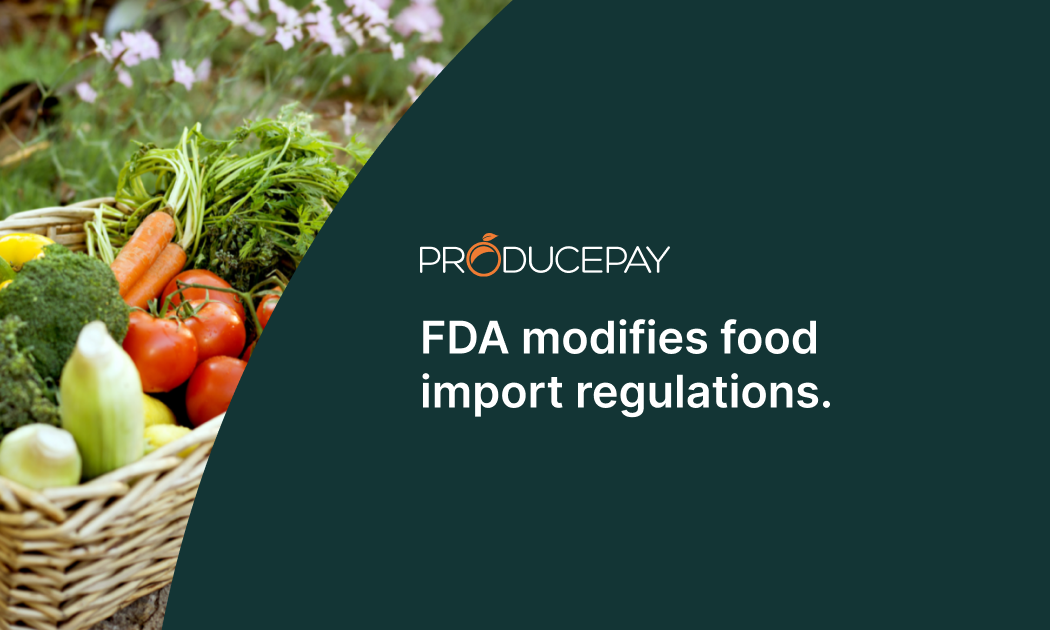
FDA modifies food import regulations.
In the United States, the FDA has modified its food import regulations. While the impact of these changes on agri-food imports is not yet known, because the agency plays a key role in regulating imported food, the consequences of these changes could affect agro-exporters from Latin America.
The FDA’s Food Safety and Nutrition division, is currently under pressure from commercial groups and other stakeholders to designate a Deputy Commissioner to oversee all programs related to human food.
FDA is in the spotlight in the U.S.
After a powerful report issued by a Reagan-Udall Foundation panel, which recommended significant improvements, the FDA has made major changes to the direction of its human food program.
It should be noted that the FDA has been criticized in recent years for responding too slowly to problems such as contamination outbreaks in fresh foods, the reduction of sodium in the U.S. diet and the presence of heavy metals in baby food.
In response, Dr. Robert Califf, Commissioner of the agency, led a structural reorganization for the Human Foods Program and the Office of Regulatory Affairs. The new structure aims to protect and promote public health by modernizing data systems, providing more resources, improving emergency response systems and creating a stronger regulatory program.
First changes implemented by FDA
The new organization for the Human Foods Program will be led by a Deputy Commissioner who will report directly to the FDA Commissioner and will have decision-making authority over policy, strategy, and regulatory program activities. A Center for Nutrition Excellence, an Integrated Food Safety System Association Office and a Human Foods Advisory Committee will also be created.
The purpose of all these changes is to enable the agency to supervise 80% of the food consumed by Americans. However, it is possible that these changes could affect agricultural imports in some way, although their impact is not yet known.
The new traceability rule
FDA has established a final regulation to improve the traceability of contaminated foods and prevent foodborne illness.
Additional traceability recordkeeping requirements will apply to certain foods such as fresh leafy green vegetables, nut butters, fresh pre-cut fruits and vegetables, and salads with ready-to-eat deli meats.
This will enable faster identification and removal of potentially contaminated foods from the markets, resulting in fewer foodborne illnesses and deaths. This regulation sets a basis for improved traceability and a homogenous, universal food traceability language that will help the industry adopt and leverage traceability systems that are more digital, interoperable and technology-enabled.
Will changes affect agro-exporters?
It is possible that these changes could improve the FDA’s effectiveness and efficiency in food regulation, which could increase consumer confidence in the food that the United States imports, and could, in turn, result in increased demand for agricultural products from other countries.
It is known that the FDA is working on a proposal for a new symbol on fresh produce labeling, which will represent “healthy food”, although so far the requirements that must be met in order to have this symbol have not been announced.
On the other hand, if these changes fail to address fundamental problems at the FDA, or if they result in stricter and more costly regulation, they could reduce demand for imported foods and negatively affect agricultural exports to the United States.
If you are an agro-exporter of fresh produce to the United States, it’s important to be aware of changes in the FDA’s fresh food import rules. If you are interested in trading fresh produce, ProducePay’s Marketplace can be a viable solution to regulatory changes like this.
Sources: Covington, PBS, Agri-Pulse, Industria Alimentaria
